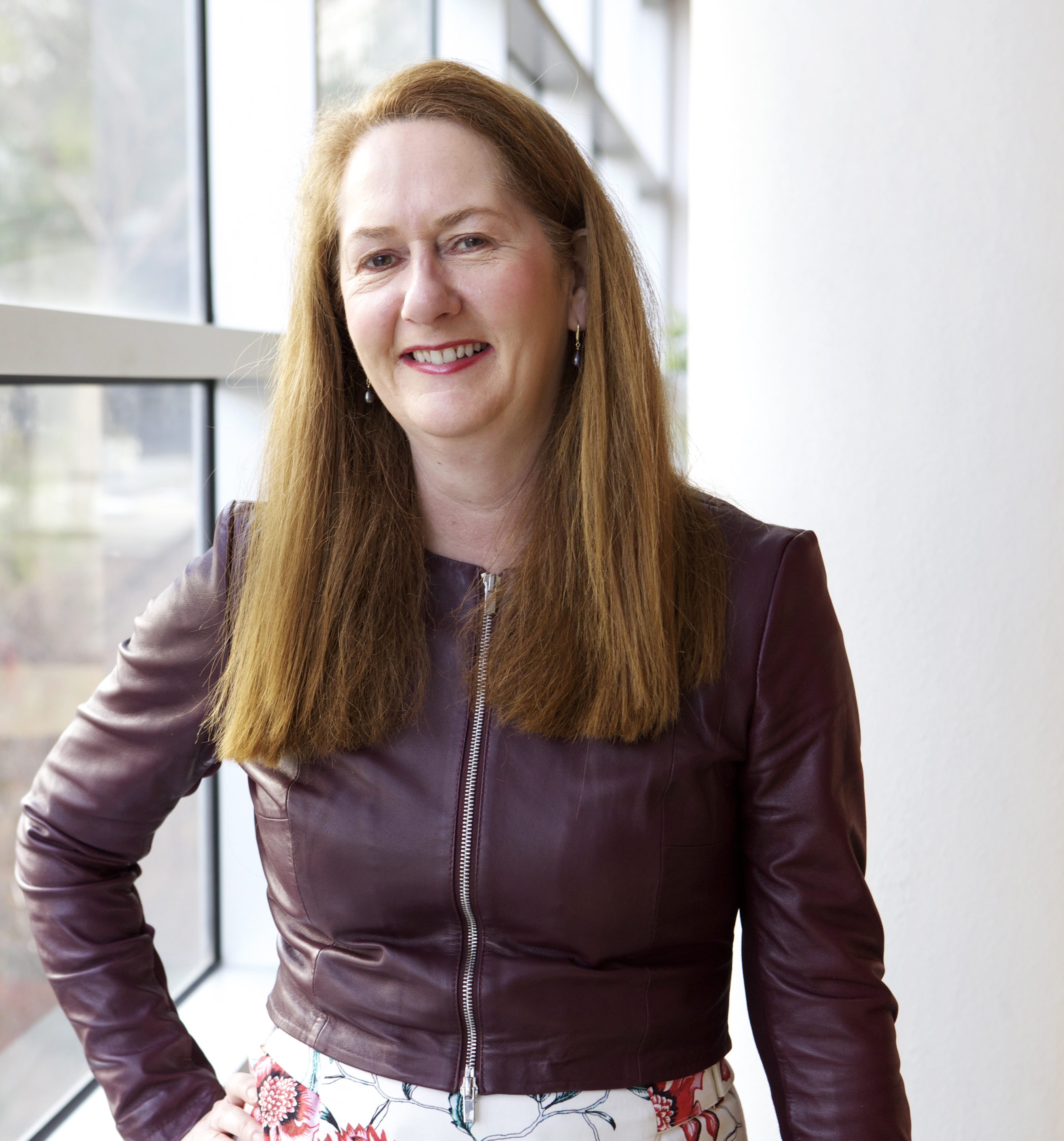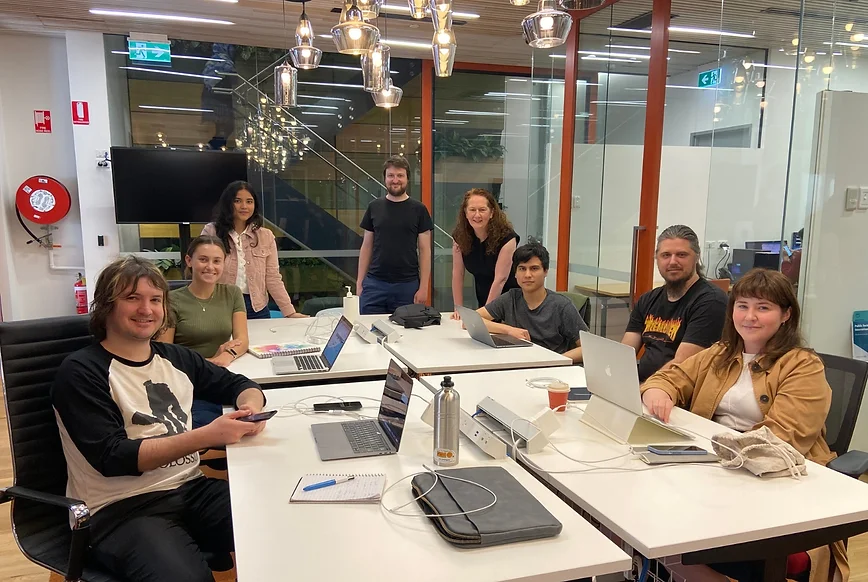This week, we spotlight Grainne Oates, who is originally from Sligo. Grainne is the Founder of Quitch, a mobile learning platform designed to improve retention and boost performance through game-based techniques. Her story of how she got to this point is incredibly unconventional and inspirational.
In 2015, as an accountancy lecturer at Swinburne University of Technology, she and her colleagues witnessed first-hand that their students were hard to engage and hooked to their phones right before and after her accounting lectures.
This prompted her to search, with her students’ input, for a solution to tackle the problem of distraction at its core—inducing entertainment in learning processes and creating fun journeys people would love to get involved in.
Today, the platform has been used by millions of students at some of the best-known universities and educational bodies worldwide. Just last year, Australian Catholic University research found that Quitch increased student retention at the University by 13%.
Grainne shares her insights on the challenges and triumphs of building Quitch from the ground up, how bootstrapping gave her the discipline to run a successful business, how some of her students, such as Sandra Campos are still driving its growth, having joined as students seven years ago.

Enjoy Grainne’s incredible story 👏
Can you tell me a bit about yourself, where you are from originally and why you decided to move to Australia?
I’m from Sligo, in the northwest of Ireland. I grew up there on a small farm with my six siblings, with my fabulous mum and dad. Growing up, we had lots of work to do on the farm. It wasn’t my greatest skill set, but one had to do it, and it was probably a good thing again; it built resilience from a young age.
As you can tell, I came to Australia to backpack quite some years ago and stayed. I ended up meeting my husband here, and now here we are, not on a small farm but with two small dogs. 🐕
What about your journey with Quitch? What drives you to do what you do?
I was a lecturer and continue to do that part-time at Swinburne University in Melbourne. I taught about 1000 students at a time, and it became obvious to me that the way we delivered teaching and learning needed to be improved for today’s students.
At the university level, we have high failure rates and low retention, and I often feel like we keep doing the same thing and expect some miraculous outcome. So, I eventually decided I would do something about it.
Grainne Oates
As I pondered this, I noticed that all the students were glued to their phones as they left the lecture hall. It struck me at that moment that we don’t deliver anything on mobile to them and that this was an opportunity for us to do something different.
So, I researched mobile learning, gamification, and learning because students often talked about having fun and using the phone to entertain themselves. A few weeks later, I read my ideas to the students, and they said they loved this idea. Their feedback was that we would help you build a solution because we want learning to be fun.
Twenty to thirty students ended up helping me build Quitch. Some, like Sandro Campos, are still working with me, which is terrific. When building a business, You need to be very clear on what the problem is, and you need to involve the people who will be using it in the design of it.
How did you find the transition from lecturer to entrepreneur?
It was scary, fascinating, and absolutely a wild ride, and it continues to be.
Being an academic, everything in your world is very structured. You then get tossed into a world where you are expected to do everything yourself without other skill sets. So you’ve got to find a way to raise money. You’ve got to find out how you employ people who are the best people to employ. How will you design this product you’ve decided to deliver to the world? It’s crazy.
One of the first things you need to do as early as possible is identify what you’re not good at, which you’ll find are many things. Then, identify what those gaps are and then bring people in to fill those gaps.
Conversely, what were the biggest challenges in starting a business abroad after emigrating from Ireland?
I mentioned the business challenges, fundraising, and all that type of thing. However, as someone who has emigrated, you don’t tend to have that network. You don’t have all those people you grew up with, so you’re almost starting from scratch to build that whole network again.
However, on the flip side, while it is a challenge, it’s also an excellent opportunity for people. You can almost reinvent yourself if you like and start from scratch. You can also re-educate yourself and go down different paths, and so on.
I’m interested to hear about some of your plans for Quitch over the next few years. What are your biggest priorities?
We started as a startup but have now transitioned into the scale-up phase. Our expansion into international markets, including Ireland, marks a significant milestone. The Insurance Institute of Ireland has been a valued partner for over five years, while CPA Ireland has been on board for nearly four years. Recently, we’ve expanded our reach to include a university in Germany and several universities in the US, such as Oklahoma State and Emory University in Atlanta.
This year, we introduced our B2C model, allowing us to scale more rapidly. By collaborating with content providers like the American Institute of CPAs, we offer short courses through Quitch, accessible to anyone worldwide via the App Store or Google Play. Our revenue-sharing model with these partners enables us to continue expanding our offerings.
Excitingly, we’re on the brink of announcing a partnership with a major company, although I can’t reveal the details today. Keep an eye on LinkedIn for the announcement, as it aligns with our mission to democratise education. Watch this space.

Who are some of the people/organisations who helped you on your Australian Entrepreneurial journey?
I’m very grateful for the support I’ve received from people here, from family and investors, and from institutions like Swinburne University, who have gotten behind us and been able to help at every stage.
I started with a small teaching and learning grant of about $20,000 from Swinburne. That got me started. At the end of last year, a further significant investment was made. And so we’re continuing on that journey together now.
I’m also grateful for the opportunity to start a technology business. In many other countries, it’s just not possible.
Do you have any advice for anyone looking to start and who might be reading this piece?
Just get over that fear. What’s the worst thing that can happen? It is the thing that I always say: do it. There are plenty of people out there who are willing to help you take the leap!
What’s one bit of advice you wish you could tell yourself when you first emigrated?
Yeah, it’s crucial to revisit something I mentioned earlier. It’s about opening yourself up to opportunities when you make the move. There’s this sense of freedom when you immigrate, where you can reinvent yourself. Even if you’re not young, you can still try new things. There’s bravery in that. I’ve noticed a difference between moved people versus those who stayed. I could move anywhere tomorrow without hesitation.
This freedom offers opportunities, and if things don’t work out, so what? It’s about giving it a try. My advice is to network and be open to new opportunities, even if they’re unrelated to your past experiences. For instance, I was a lab technician in Ireland, but now my work is entirely different. It’s been quite a transformation.
Grainne Oates
What advice would you give an Irish person considering starting a business abroad?
Throughout my entrepreneurial journey, I’ve realised that many people possess brilliant ideas but often need help transforming them into viable businesses. Despite the potential and greatness of these ideas, the fear of failure often holds them back. However, I’ve learned that the most daunting hurdle is taking that initial leap to establish a company and acquire those crucial first customers.
People often cite reasons like a lack of funding or customers as barriers to starting a business. However, I’ve learned that it’s essential to push past these doubts and dive into the endeavour headfirst. By setting up the company, conducting tests, and actively seeking feedback from potential customers, I’ve found that mitigating risks and increasing the likelihood of success is possible.
What Does it Mean to be an Irish Founder Abroad?
Being Irish is something I truly cherish. Firstly, I love being Irish; it’s a fundamental part of my identity. Wherever I go, there’s a genuine warmth and affinity towards Irish people, making connecting with others easier. Our reputation as warm, friendly individuals precedes us, and it’s a significant advantage in various interactions.
Reflecting on Ireland’s history, it’s evident that Irish people have thrived wherever they’ve ventured. We’ve made significant contributions globally, and regardless of the challenges we face, we adapt and succeed. This history is a powerful motivator for me, reminding me of the resilience and determination inherent in the Irish spirit.
The last thing I’ll say is that the Irish possess an innate entrepreneurial spirit. We’re known for our innovation and willingness to pursue new ideas. This adventurous mindset, coupled with our creative ingenuity, sets us apart and equips us for success in various endeavours.
Being Irish instils a unique entrepreneurial spark that drives us to excel in whatever we pursue. ☘️
